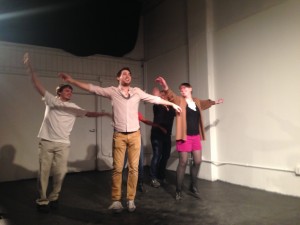On April 15, the Pittsburgh Post-Gazette ran an opinion piece written by Brian Albert, the mid-atlantic campus coordinator for the Zionist Organization of America. The article had the attention-grabbing headline, “Anti-Semitism 101 at University of Pittsburgh.” The event Albert was bringing attention to was “SJP Holocaust Remembrance Day: Edith Bell on Palestine,” cosponsored by the University of Pittsburgh student group Students for Justice in Palestine (SJP) and the Pittsburgh chapter of Jewish Voice for Peace to commemorate Holocaust Remembrance Day, or Yom Hashoah, on April 16.
In his article, Albert primarily criticized the University of Pittsburgh for including the event as one that can be used to acquire Outside the Classroom Curriculum (OCC) credit, which is meant to help students become well rounded and ready for the world beyond college. In his piece, he wrote that the keynote speaker, Edith Bell, was not going to be speaking to, “commemorate the Holocaust but rather to vandalize the day by painting Israelis as modern-day Nazis.”
However, the article unintentionally brought more attention to the event.
“We were initially expecting 50 people but because of the Gazette, we expect more people,” SJP student board member Hadeel Salameh commented.
The event was moved from a smaller room it was originally scheduled for to a larger one at the William Pitt Student Union, and even with the added space there were few open seats. The SJP’s intention was to provide a space for Bell to talk about her experiences in the Holocaust, as well as her life afterward. Bell is well known for being critical of the Israeli government, and the country’s relationship with the Palestinians. It is this notoriety that caught the attention of Albert, and also SJP.
Before the article was published, Hillel JUC–the Jewish student organization that serves primarily Pitt and CMU students–contacted SJP after having students express anxiety over the event.
“Hillel is deeply concerned that SJP has appropriated the holocaust and exploited it for their political purposes. I think that’s what has been most upsetting for a lot of our Jewish students,” said Hillel President and junior Zachary Schaffer when asked about the event. “A day we are meant to commemorate people who were killed, was instead appropriated to attack Israel.”
The event had two halves. During the first half, Edith Bell told her moving story of her experiences during the Holocaust. After, she took questions from the audience and asked that questions be on topic to this part of her story. The audience stayed on target and asked the questions that Bell has undoubtedly heard countless times about the experience, and she provided answers from her perspective. The second part of the event focused on her life experiences after liberation. Her travels took her around the world, going to what would become the state of Israel and later to the United States.
The questions following this portion of the speech entirely revolved around the Palestinian-Israeli conflict. Between the two open question portions, the second half yielded a greater number of questions, and they veered away from Bell’s Holocaust survival story and got extremely political with audience members asking for Bell’s opinion on settlements, whether Hammas is a terrorist organization, and the establishment of Israel. As in the previous section, Bell kept her responses to her own personal experiences and made it clear that the opinions she was expressing were solely her own.
Jewish Voice for Peace member Dani Klein, when asked about the article in relationship to the event, said, “This person was criticizing the event before it happened. They didn’t show up, so they don’t know what happened here, it is about honoring a survivor.” In response to the article, both the SJP and Jewish Voice for Peace had letters to the editor published in the Pittsburgh Post-Gazette on April 17.
Schaffer, who attended the event, commented, “The event definitely wasn’t what the article said it would be, the article threw it out of proportion, but there were still concerning aspects.” He added, “It was less the content than the fact they were exploiting Holocaust Remembrance Day–despite the fact they knew Jewish students were offended by this.”
Moving forward, the Jewish student organization is in communication with the staff in charge of the OCC credits.
“The Pitt administration has been a great friend to the Jewish community on campus and listened to us about our concerns about anti-Semitism. We’re very appreciative of the support from the university,” said Schaffer.
When asked how Hillel had responded to the event, Schaffer stated that their primary goal was to reassure the Jewish students that Pitt was still a safe place for them to voice their own concerns.
“It has been hard for people in our community. We haven’t had time to be political,” Schaffer said.


